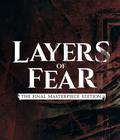Buy Biomutant
In August 2017, Biomutant was introduced to the world with some favorable impressions. From one convention to another over the course of the next year, it was shown off to critics and players alike, and both parties were impressed with the efforts of the new studio founded by former Avalanche Studios employees. Then it disappeared from the public eye, with the only news being that the game was still in progress. Three years after it disappeared, Biomutant is finally being released, and the result is exactly what we've hoped for.
The game is set far in the future in a world where animals have mutated, becoming both bipedal and civilized, creating villages and forming tribes on top of the remnants of the old world. Players take on the role of a mutated and evolved creature; orphaned as a child due to a predator, you were forced to become a powerful fighter to survive. You encounter someone from your youth, who asks you to save the Tree of Life from the Worldeaters, who are gnawing at the roots of the life-giving plant. At the same time, the predator is still out there, and the six major tribes that are instrumental to saving the world are at war with one another.
For those who enjoy stores with postapocalyptic settings, Biomutant will be up their alley, but those who usually shy away from this setting will find it appealing due to the changes from the norm. Ruins still exist, some in much sturdier shape than others, but there are a significant number of villages and forts that are inspired by older Asian architecture. When compared to other postapocalyptic games, the buildings don't seem to be comprised of scraps. The land still features some unnatural sections that are plagued by radiation or chemical fumes, but most of the world is filled with vegetation. Tall grasses and flowers blanket the land and hills, while trees of all types create lush forests that don't just act as the artificial walls of the world. The forests provide gorgeous scenery, especially when seen in conjunction with the wind, a sunset, or a smattering of rain. You might even use the built-in photo mode to take snapshots.
Another major change is the actual cause of the apocalypse. Instead of taking on the likes of Fallout or Wasteland with a nuclear Armageddon, the game ties it to pollution caused by a megacorporation. Biomutant can get heavy with this, sometimes resulting in short conversations that amplify why greed was the real cause, but it never gets to the point where the title becomes preachy. At the very least, it feels fresh considering how the nuclear arms race is often used as the catalyst for these sorts of titles.
Then there's the most obvious of the changes: the presence of animals instead of humans. All of the creatures you meet tend to be animals that seem unique but are mostly recognizable. The actual appearance skirts the line between cute and realistic, with most of them having visible sharp teeth and the inability to create facial expressions that are immediately recognizable to the human eye. At the same time, everyone — from allies in a chosen tribe to the gigantic Worldeaters — sport enough fur to make them inviting enough to hug if they existed in real life.
One of the more charming aspects to this is that you never hear any of the animals speak to you in English. Every creature always talks to you in their own tongue, which sounds like an amalgamation of words from various familiar languages. Instead of the speech being subtitled, your robot grasshopper companion (voiced by David Shaw-Parker) translates it for you. It's a novel approach, but those who grow tired of it can easily adjust the sliders so he can chirp less and/or do more instant translations.
When you begin, you're met with a character creation system that starts with selecting between six different species, each with a distinct look and starting statistics. From here, you move a cursor around a circle to change some stats and morph various body parts. From here, you select resistance specialties before moving on to fur type and color. Finally, there's the class system that dictates which specialties you'll have from the start, whether it's the ability to dual-wield melee weapons or an electric spark ball. With the exception of species and fur patterns and colors, everything else can be evened out as you journey through the game, so you can have a sharpshooter with faster reloading skills who has the chance to shoot electricity while holding two blades.
The core gameplay is that of an action-RPG in the same vein as something like The Witcher. For the RPG side, there are standard XP gains and leveling that open up higher stats in a chosen category. Other points let you open up more specific attack combos and other moves that utilize energy, like dashing while leaving behind a trail of fire or unleashing radioactive sparks on enemies. More interesting is the ability to craft new weapons or modify weapons and armor to gain more stats or new abilities. You may pick up a basic automatic rifle, but with the right parts, it can reload faster and deal both regular and ice damage to foes. The cobbled-together look of the weapons and bolting scraps of metal to clothes is the closest the game gets to a postapocalyptic look, but it's enjoyable to put together a perfect combination out of pure junk.
For the action side, Biomutant achieves the kung-fu vibe the developers touted when the title was announced, but that is only emphasized if you go to a fight armed with traditional martial arts weapons or go in unarmed. Give yourself a sword or a club in conjunction with a gun, and the combat feels more akin to a modern Hong Kong action film. Whichever approach you work with, the combat takes inspiration from the likes of Devil May Cry, where you can do side cartwheels or slide under enemies to dodge while also pulling off multi-hit combos. Smaller enemies can get launched into the air, so you can chase them into air combos; ground combat has you darting from foe to foe, dishing out hits where necessary. It's fast and fluid and stylish, especially when you unlock new combos along the way, and it is satisfying that fights with random enemies don't feel like pushovers. The only time the combat system changes is when you're up against the Worldeaters, since you're usually piloting a vehicle or riding a mount; it slows down the combat but retains some excitement due to recognizing different patterns for the battle.
As expected, the open-world nature of the game means that you'll dart from one end of the world to another to complete the main tasks, but the game is deceptive when it comes to which quests are essential. One of the better examples is when you're tasked with finding an essential part of a mech. The part in question and a creature that needs to be killed to save the Tree of Life is in the Deadlands, an area that saps away at your oxygen unless you have an airtight suit. The part may be a main quest, but finding the suit is a side-quest, and while you can locate the pingdish station to locate the suit, the area it's in requires another suit to deal with heat, which, in turn, is in an area surrounded by radiation.
There's a feeling that these kinds of quests mix up main ones with side ones to artificially lengthen the game, but you won't mind because of the rich world. Wander around, and you'll find a small group of creatures or enemy tribe members to fight. Other times, you'll find the remnants of the old world, like gutted cars with loot or random pilgrims that send you on quests to find things. Run into a giant creature holding a lantern, and you may dream about when you used to fight bullies to upgrade your robotic grasshopper companion. Villagers may ask you to defend them from attacks or get revenge on captains who have gone too far. Bandit camps with prisoners to rescue are easy to locate, and other quests might have you scavenging for cosmetic parts for your mech or a barber to modify your overall look. Even points of interest like abandoned bunkers, go-juice stations or shopperias might not have quests associated with them, but they have a running tally of important loot. The abundance of side-quests will keep you busy, but their variety will keep you seeking them out.
Speaking of light and dark, Biomutant comes with a morality system where your actions correspond to your affiliation with either side of your conscience; this, in turn, affects how people respond to you during conversation. Aside from getting points that unlock new powers, this isn't anything new, but the game has some fun with it by letting you see both your dark and light sides bicker with one another. One thing that will take you by surprise is how one of those early morality decisions — the choice of which of the two major tribes to align with — completely affects the requirements needed to accomplish the endgame. Both go for the extremes, with one side aiming to unite the tribes and stop the destruction of the Tree of Life, while the other wants to conquer the other tribes and let the Tree of Life die. This knowledge encourages you to seek out another playthrough once those end credits roll.
A rough estimate clocks the playtime of the main campaign missions at around 20 hours, but it can be significantly longer if you go after the discovery and looting of significant spots on the map and partake in all of the side-quests. For those aiming to go after a 100% completion rate, keep in mind that you need to do that before taking on the final quest, since you can't go back to that same world after the end credits roll. Completing the game unlocks a New Game+ mode, where you still have abilities, gear and levels, but the world map and quests are reset. Aside from everything being at a higher difficulty than before, it affords you the chance to ally yourself with the other four tribes if you wish, giving you more options toward the game's conclusions.
As grand as this is, there are a few things that can be irksome. Those looking for puzzles will be disappointed that most of them consist of lining up colored notches in a limited number of moves, and none are terribly difficult. Conversations with some of the major characters can often ramble on, since they cover your childhood, feelings on the predator Lupa-Lupin, and your tribe affiliation before finally touching on the specific topic. Finding and using a mount is cool, but it never feels like you're getting an advantage in attacking, defending, or even speed, so you won't bother with them unless absolutely necessary. Likewise, the weapons you gather from the six tribes are awesome because of their stats and they're more traditional compared to the stuff you make yourself. The flexibility of makeshift weapons means that you're less likely to shift to the staff and boomerang. Also, while you have an option to pet some creatures, the cut scene that follows robs you of the satisfaction, as it only concentrates on your character's head, preventing you from seeing a paw or claw run through fur.
Of all of the issues that one may have with Biomutant, the biggest one has to be the crashes. Throughout the course of 22 hours, we experienced around eight crashes. They were randomized as far as specific causes go, but most of them seemed to occur after three hours of consecutive play, with the time being shorter if you restarted the game immediately after the crash. Aside from two boss fights that needed to be repeated, most of the crashes didn't result in significant setbacks, since the game autosaved quite frequently, but it is something to note if you plan on sitting down with the game for long stretches of time.
If you can live with the crashes or if the developers have patched it by the time you read this, then Biomutant is a rather excellent title. The open-world setting feels unique amongst other postapocalyptic titles, especially with humans being replaced by cute yet realistic-looking fuzzy animals. The world looks gorgeous but offers a ton of stuff to do with a wide variety to boot. The fighting is fluid and excellent, no matter if you're using special powers or normal weapons, and the flexibility of many of the game's elements gives it a ton of freedom compared to its contemporaries. Even in a month crowded with some legitimate heavy hitters, Biomutant is well worth playing for those looking for a good RPG.
Score: 8.5/10
More articles about Biomutant













 Biomutant is a post-apocalyptic open-world action RPG that delivers real-time melee, shooter and mutant ability action.
Biomutant is a post-apocalyptic open-world action RPG that delivers real-time melee, shooter and mutant ability action.










































